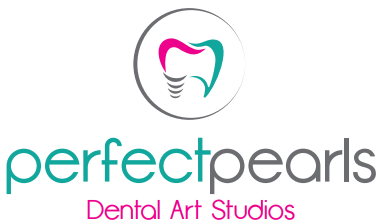- Home
- 5 Tooth Care Lessons for a Summer of Sport

The football season may have ended but don’t worry, there is plenty more sport on the way to fill the gap. The annual all-star event that is Wimbledon is just around the corner and so too is a packed calendar of rugby, cricket and other popular sporting events. When you think about your average sports star, no doubt you imagine somebody at the peak of their physical condition and health. But here’s a twist for you – the average person is more likely to win a medal when it comes to healthy teeth! In fact, a sportsperson is almost twice as likely to experience dental problems in comparison. So why do athletes have problems with their teeth, and what can we learn from this?
1. Protect your teeth
Whilst it is less of a problem for the majority of individuals, receiving blows to the face and mouth is a particular issue for many athletes. This can also affect people who participate in a variety of sports and other activities. Then there is the risk of impacts from objects such as cricket balls or hockey pucks, which can be just as damaging as rugby tackles and collisions.
If you play a contact sport such as rugby, hockey or boxing or enjoy a physically challenging activity that may involve contact with the face, always ensure you are wearing adequate protection such as high-quality gum shields. In all cases, don’t be afraid to seek advice from your dentist about how best to protect your teeth and gums from the risk of damage. If you are part of a team, make sure that the medical staff have procedures in place for damaged teeth – and of course, get yourself to a dentist as soon as possible if you have any loose, chipped or otherwise damaged teeth following a match.
2. Make time for your dentist
One reason that athletes in particular experience above-average levels of dental problems is that their intensive training programmes tend to make it hard to invest time in routine dental care appointments. Coaches, trainers, physiotherapists and other medical staff all form part of the athlete’s core support team, but dentists seem to be conspicuous by their absence.
If you are a sportsperson, taking the time to visit your dentist at least twice a year – or more frequently if recommended – can really help to identify issues at the earliest stage and address them before they develop into a serious problem.
3. Eat right
When you picture the diet of an athlete, you probably see lots of greens, loads of fruit and plenty of lean meat – a perfect picture of a healthy, balanced diet. When it comes to mealtimes, most athletes do indeed tend to eat well. Unfortunately for the teeth, what they consume during training is often far from ideal. The high intake of carbohydrates coupled with consumption of sports drinks and energy supplements is believed to be a big contributor to tooth decay and other problems.
Keen sports people should consider how often they consume sports drinks and similar products. They should opt for low sugar or even sugar-free products wherever suitable. Also a stringent brushing regime is an absolute must for any sports person – even if you do ache by the time you get to the bathroom!
One top tip that can be very effective is to rinse the mouth with plain water each time you consume an energy boosting product – so take advantage of water whenever it’s offered – even if it’s just for your teeth.
4. Stay hydrated
We’ve already mentioned how important it is to use water to reduce acid levels in your mouth. Simply staying properly hydrated is just as important for your teeth as it is for your body as a whole.
The frequent dehydration that many sports people experience has now been identified as a major factor in their poor tooth conditions. Research indicates that dehydration reduces the protection offered by saliva. Saliva plays a key role in protection against tooth decay, dental erosion and gum disease.
Whatever you are doing, both work and play, be sure to stay sufficiently hydrated. And as in the previous piece of advice, make it sugar neutral wherever possible for the greatest benefits.
5. Rest and recover
Your immune system plays an important role in helping you to maintain healthy teeth as well as a healthy body. Whether you are a professional athlete, a senior manager, a self-employed business person or a busy parent, the chances are you are constantly under pressure. Being stressed on a regular basis can quickly undermine your immune system. This can have a knock-on effect on your teeth and gums.
To protect your teeth, look for ways to relax, recharge and find a balance. Try to eat a healthy, balanced diet that offers your body the vitamins and minerals it needs. For a sportsperson, this is an absolutely vital part of the regime.
At Perfect Pearls Dental Implant Clinics, there’s not much we can do to protect you from knees, elbows and flying objects – but you can rely on us to get your smile restored once the dust (and bruises) have settled.
We offer a full range of treatments to restore damaged or missing teeth from individual implants to a complete new set – and at prices that are as competitive as you are.
To find out more or book an appointment, call us on Wolverhampton 01902 500823. Alternatively, contact us online.
- Home
- 4 Ways Smoking is Harming Your Teeth

This month doctors, dentists, pharmacies and others in the healthcare sector have been helping people all over the UK to give up smoking as part of the Government’s ‘Stoptober’ campaign. Whilst the impact of smoking on the heath has received much publicity over recent years, the damage that smoking does to your teeth and gums receives much less attention. So just what does smoking do to your teeth and gums?
1. Tooth Discolouration
With every cigarette you smoke, you are introducing nicotine and tar to your teeth. Both of these substances have a very strong staining effect. It can quickly cause visible changes to the appearance of your teeth. Even after a relatively short time of smoking, smokers can often see a noticeable yellow staining of the teeth. With prolonged or heavy smoking, the staining will get progressively worse and in some cases leave the teeth almost brown. Whilst there are a number of consumer products on the market which claim to remove such staining, the only safe and truly effective remedy is professional cleaning and whitening by a qualified dental expert, which can be an expensive process.
2. Damage to Salivary Glands
Whilst most people know what saliva is in a general sense, few people know a lot about what saliva is comprised of, why we need it and how it works. Saliva is mostly water, but also contains a number of important proteins and minerals that help to protect tooth enamel and prevent tooth decay and gum disease. One of the ways it achieves this is by reducing the acidity level in the mouth. A healthy body makes between 2 – 4 pints of saliva a day. Smoking causes inflammation of the salivary glands located in the roof of the mouth. Consequently depriving your teeth and gums of this essential protection mechanism.
3. Plaque and Tartar
Plaque is a sticky, colourless film of bacteria that forms over the teeth. It is responsible for that ‘furry’ feeling you experience if you do not brush your teeth for any prolonged period of time. The bacteria in this film produce acids which eat away at your tooth enamel and cause decay. In some cases, the damage can extend into the roots, causing considerable discomfort and damage. When plaque is allowed to stay in your teeth, it can harden into tartar. Tartar forms above and below the gumline and can cause many gum problems. It can only be removed by a dentist with specialist apparatus – brushing will not remove it.
4. Delayed Healing
As well as causing several direct problems to your teeth and gums, there are also many indirect effects of smoking. One important effect of smoking is that it introduces carbon monoxide, which attaches to the blood cells and restricts the ability of your blood to carry oxygen to the parts of the body that need it. It is not just your vital organs that are affected by this. Reduced oxygen can cause a significant delay in healing. This includes healing after dental surgery such as tooth extraction or periodontal treatment. Not only can smoking cause you to require surgery – it can also prolong the healing process afterwards.
Conclusion
Making the decision to stop smoking is the single best way to protect your teeth from the many harmful and potentially expensive effects that smoking causes. With so much support available, Stoptober is a great time to make the commitment and give up for good. Whether you are a smoker or have recently stopped, it is essential that you visit your dentist and dental hygienist, who will be able to offer you the best treatment and advice to keep your teeth in the best possible condition, as well as discuss cosmetic solutions such as tooth whitening to restore your shine and help you reclaim your smile.
For more information about how Perfect Pearls can help you restore your smile, give us a call on Wolverhampton 01902 500 823. Alternatively, enquire online for a swift response.







